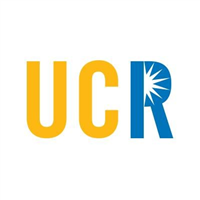- Find Your College
- Scholarships
- Pay for College
-
Articles
- COLLEGES
- Most Recent
- Affordability & Cost
- College Search
- Comparisons
- College Majors & Minors
- Myths
- News & Trends
- Tips, Tools & Advice
- Admissions
- Most Recent
- ACT & SAT
- College Admissions
- College Applications
- Myths
- Online Colleges
- Questions & Answers
- About
- Home
- >
- Browse All Majors
- >
- Biological And Biomedical Sciences
- >
- Pharmacology and Toxicology
- >
- Environmental Toxicology
Environmental Toxicology
Select Type of Degree:
Select State:
|
#1

SUNY at Albany
|
|||||||||||
|
#2

University of California-Riverside
|
|||||||||||
|
#3

University of Wisconsin-Madison
|
|||||||||||
|
#4

Michigan State University
|
|||||||||||
|
#5

University of California-Santa Cruz
|
|||||||||||
|
#6

Texas Tech University
|
|||||||||||
|
*The estimated net prices above are College Raptor’s estimate. Please contact the college financial aid office for actual net cost figures.
|
|||||||||||
About Environmental Toxicology
A program that focuses on the scientific study of the health effects associated with exposure to toxic chemicals and systems occurring in the natural, work, and living environments; the management of environmental toxins and toxicity; and the development of protections for humans, animals, and plants. Includes instruction in applied ecology; microbiology; toxin transport, fate, and degradation; dermal toxicology; reproductive and genetic toxicology; atmospheric and environmental chemistry; metals toxicology; environmental mutagens and biotransformation; nutrient interaction; chemical sensitivity, disorders, and disease; risk assessment; animal waste management; environmental health; and hazardous materials management.
Students who are passionate about Environmental Toxicology can study up to a Masters degree. Right now, 86 students are granted some level of degree in Environmental Toxicology around the US each year. More students graduate with a degree in Environmental Toxicology in California than any other state. The average starting salary for an undergraduate degree in Environmental Toxicology is $42,090.
Careers
The highest paying job for Environmental Toxicology majors is Health Specialties Teachers, Postsecondary. However, another thing to think about is how many job openings there currently is. A position that is in high need that a degree in Environmental Toxicology can prepare you for is Health Specialties Teachers, Postsecondary.
Top Paying Careers
These are the highest paying careers for Environmental Toxicology majors.
Most In-Demand Careers
These are the careers in highest demand for Environmental Toxicology majors.
Student Demographics




Subscribe to Our Newsletter
Join thousands of students and parents learning about finding the right college, admissions secrets, scholarships, financial aid, and more.

College Raptor, Raptor, InsightFA, FinanceFirst, and “The Right College. The Best Price.” are registered trademarks of College Raptor, Inc.




